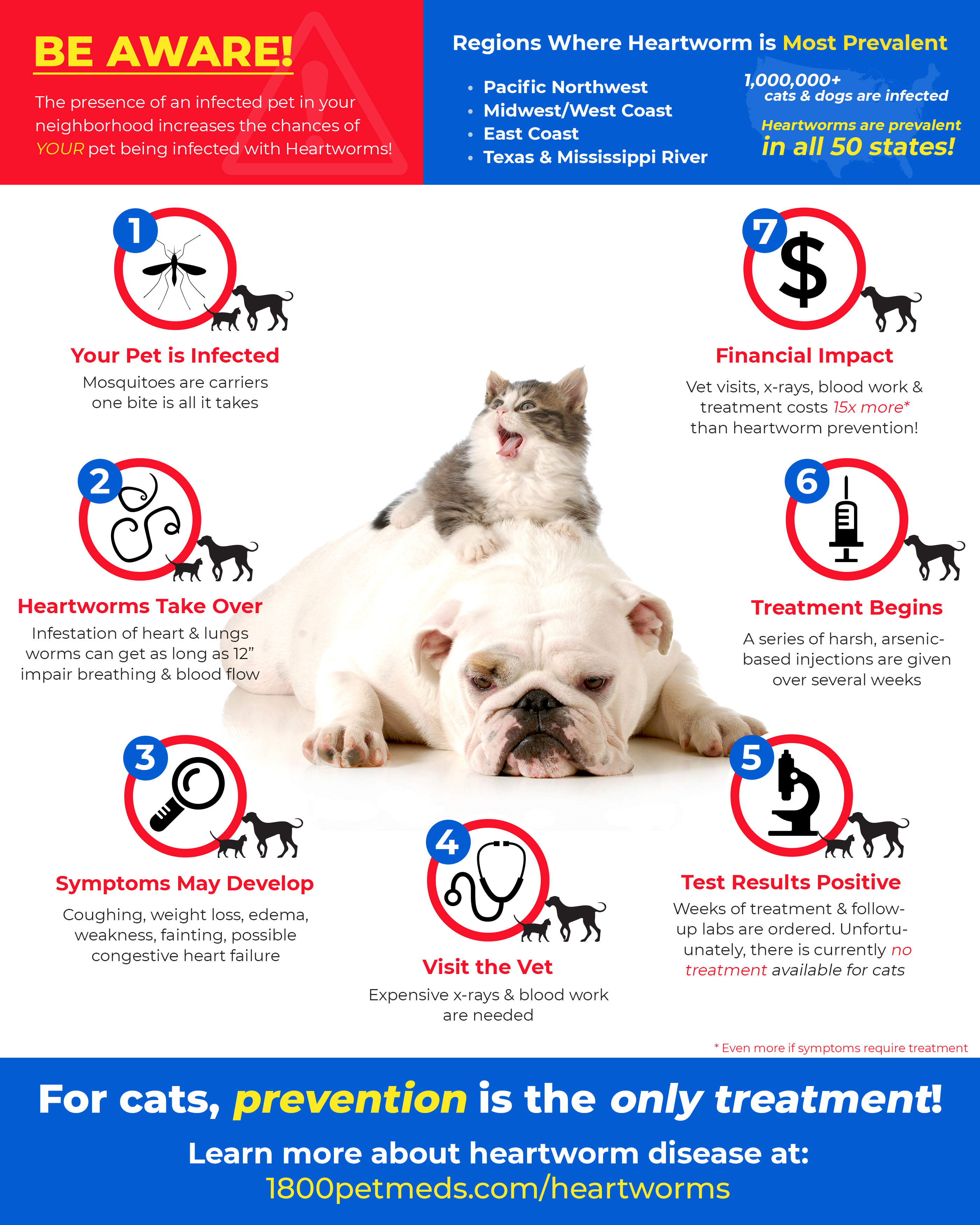Does My Dog or Cat Need Heartworm Prevention?
Doctor of Veterinary Medicine

While efforts are made to answer all questions as quickly as possible, if an immediate answer is required or if your pet is in need of urgent or emergency care, contact your pet's veterinarian immediately.
Doctor of Veterinary Medicine

You will receive an answer from Dr. Lindsay and our vet/tech team as soon as possible, usually the same day.
All answers are provided for informational or educational purposes only, and are intended to be a supplement to, and not a substitute for, the expertise and professional judgment of your pet's veterinarian.
It may be necessary to consult your pet's veterinarian regarding the applicability of any opinions or recommendations with respect to your pet's symptoms or medical condition.
CloseDoctor of Veterinary Medicine

An error has occurred, please reload the page and try again.
CloseWhile efforts are made to answer all questions as quickly as possible, if an immediate answer is required or if your pet is in need of urgent or emergency care, contact your pet's veterinarian immediately.
There is no answer related to your question
The answer to the question, "Does my pet need heartworm prevention?" is simple, but with complex reasons behind it. Your pet needs to be protected from deadly heartworms 24 hours a day, 7 days a week, 12 months a year.
The American Heartworm Society affirms that cases of heartworm disease have been found throughout the United States at all times of the year.
As well, with the relocation of pets from regions of high heartworm rates of infection to regions of relatively lower heartworm risk, the number of infections grows. This was the case when 250,000 homeless pets (many that were heartworm positive) were adopted and moved to different parts of the country following Hurricane Katrina.
Heartworm treatment is expensive, lengthy, stressful and not even an option for many pets. That's why heartworm prevention is so vital to your pet's health and longevity.
Treatment for heartworm disease in dogs is both harsh and expensive. This requires multiple visits to the veterinarian for lab work and injections of an arsenic-based medication. Some older dogs or those with other pre-existing health conditions may not even be candidates for heartworm treatment. Undergoing heartworm treatment is stressful on the health of any dog, but especially for those whose health is already compromised.
There is no FDA-approved treatment for heartworms in cats. The medicine that kills heartworms in dogs cannot be used on cats. Unfortunately, there is no similar medication available for the treatment of feline heartworm infection. While heartworm disease in cats is preventable, there is no way to stop the disease once your cat is infected. This is why it is so important to give your cat heartworm prevention medication consistently, never missing a dose.
Puppies and kittens have the same chances as adult pets of getting infected with heartworm disease. Puppies and kittens as young as 6-8 weeks of age can and should be protected from heartworm infection. The exact age at which you start your pet on heartworm prevention depends upon the particular medication you choose and your pet's weight. It's important that you increase the dosage of heartworm prevention medication as your pet grows, carefully following the instructions on the package.
Adult pets must test negative for heartworms prior to beginning heartworm prevention, and then be tested once every 12 months thereafter. This is because heartworm preventatives work by killing immature stages of the heartworm, but not adult heartworms. If there has been a lapse in heartworm prevention, your pet should be tested immediately, and then 6 months after that.
Unlike adult pets just starting heartworm prevention, puppies and kittens under 6 months old do not need to be tested. This is because it takes at least 6 months for a pet to test positive after initially becoming infected. However, puppies and kittens should be tested 6 months after starting heartworm preventatives, and then on an annual basis.
It is estimated that over 1 million pets are currently infected with heartworm disease nationwide. Although heartworms are not passed from pet to pet directly, the risk of your pet being infected grows significantly if there's an infected pet in your neighborhood. This is because heartworms are transmitted by mosquitoes that carry the disease. Just as a mosquito carrying heartworm larvae can infect your pet through a bite, mosquitoes pick up the larvae by biting pets and other animals that are already host to heartworms. Humans cannot be infected with heartworms from contact with an infected pet, but there have been cases of people developing heartworm disease from an infected mosquito.
Still have questions about heartworms and the different treatment options available for your pet? Read our article covering heartworm disease FAQ.





































